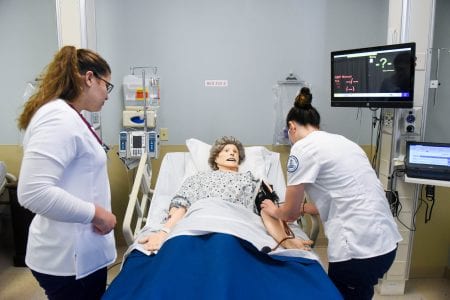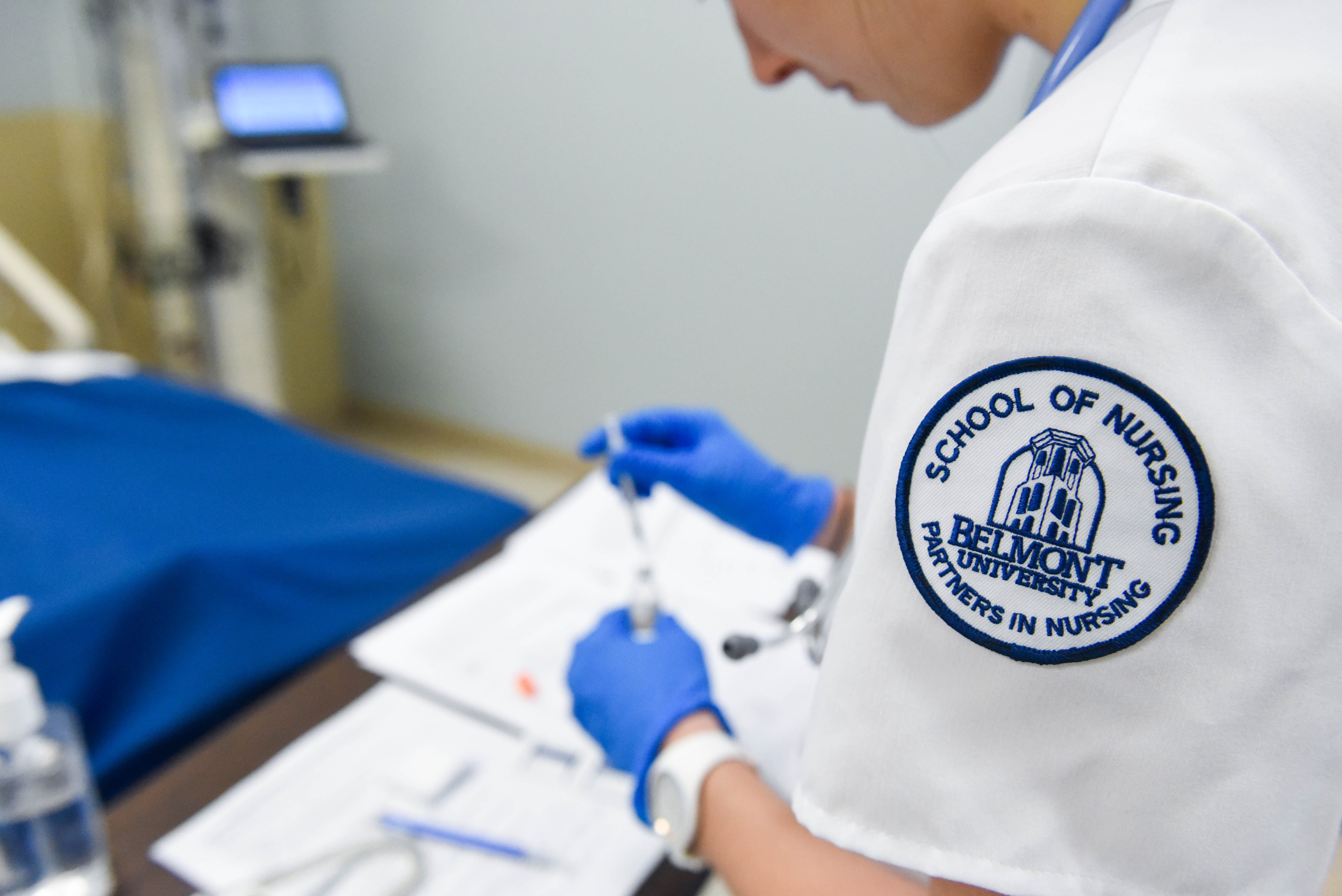Students in Belmont’s School of Nursing are prepared for all aspects of what they’ll experience on the job – including caring for patients and their families at the end of life. The School’s curriculum is heavily based on experiential learning as students receive hands-on training in health care facilities and the University’s state-of-the-art simulation labs. For senior nursing students in Dr. Sara Camp’s Adult Health II course, one of the most memorable experiences they’ll see in these labs comes through the End of Life Simulation.
Upon arrival, students were made aware of their patient, Ms. Lisa Moss’s, prognosis, as well as her signed Do Not Resuscitate (DNR) order. Prepared to provide appropriate end of life care for Moss, students entered her room and were greeted by a ‘family member,’ played by an actor, who stayed with them throughout the entirety of the simulation as their patient slowly passed away.

Though having the opportunity to understand end of life care for the patients they will be working with is paramount to their success as nurses, Camp says the opportunity to understand the importance of caring for the entire family unit during these times of transition and loss is just as important.
“End of life training for nursing students is essential because for our patients and their families, this is one of the most sacred and vulnerable moments they will ever experience,” Camp said. “It is imperative that nurses contribute in meaningful ways that are compassionate and professional. As the most trusted profession, nurses can help patients and families cope with all complex feelings, including helplessness and hopelessness, that patients and families are experiencing.”
To ensure professionalism and the best experience for students, Camp and the School of Nursing hires actors from local theatre groups. Susie Monick, a local actoress, participated in this year’s End of Life Simulation for students.
Above all, Monick said she was most impressed with the students’ concern for their patient and herself as she acted like a grieving daughter in her dying mother’s hospital room. Having experienced end of life care with her own family members and friends, she understands the importance of this training for upcoming nurses.
“My immediate family have since passed,” she said. “I have visited many friends my age in hospice, and I was bedside when my brother-in-law passed. This training is important for nursing students, because a significant death only comes once in one’s lifetime. We will always remember the good nurse at the bedside.”
Though less than 2 percent of nursing curricula across the country is dedicated to end of life care, Camp said Belmont’s program is dedicated to not leaving these critical aspects of job training to chance. “We want to give our students some tools before they find themselves in such a heavy situation, and we want to be sure they have a chance to process in a safe place.”
After the simulation, Camp leads the students through a debrief where they’re able to process their feelings and review the entire experience together. “Often, students become emotional during debrief, as they tap into personal experiences or see the nurse’s importance at this critical moment for a family,” Camp said. “I always tell them, ‘You may experience your patients’ deaths over and over again during your career, but the death of this loved one will only happen once in the life of a family member. Because of that, they will remember you. They may not remember the things you say, but they will remember how they felt when you were there.'”



